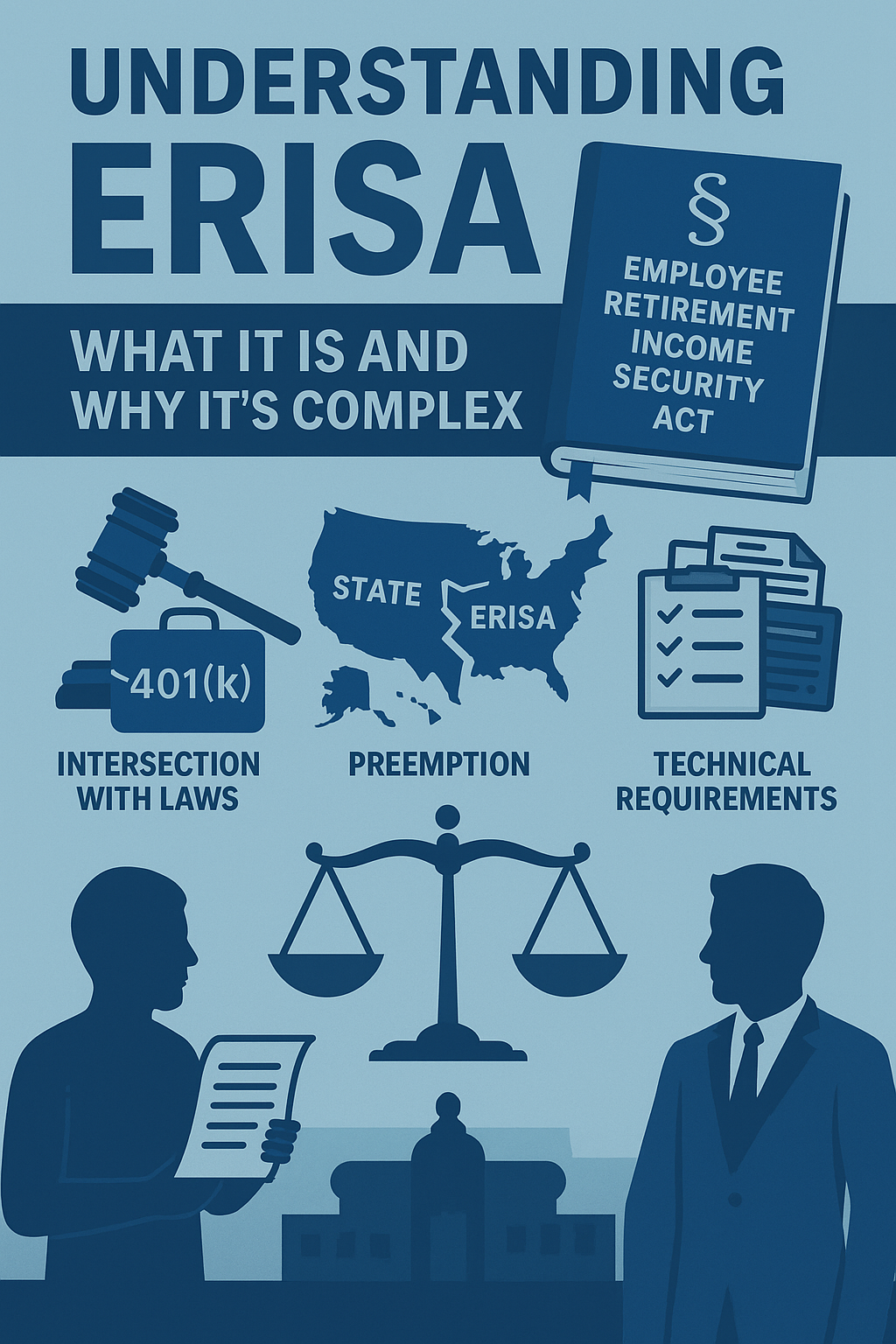
When people think about workplace benefits, they often imagine health insurance, retirement plans, or disability coverage. But behind the scenes, there’s a federal law that governs many of these benefits: ERISA.
What Is ERISA?
ERISA stands for the Employee Retirement Income Security Act of 1974. It is a federal law designed to protect employees’ retirement savings and benefits. Congress enacted ERISA in response to abuses and mismanagement of employee benefit plans, ensuring that employees could rely on the benefits they were promised.
General Provisions
At its core, ERISA sets minimum standards for:
● Retirement Plans: including pensions, 401(k)s, and profit-sharing plans.
● Fiduciary Duties: requiring plan administrators to act in the best interests of participants.
● Reporting and Disclosure: ensuring employees receive clear and accurate information about their plans.
● Claims and Appeals: giving participants a process to dispute denied benefits.
● Enforcement: allowing employees to sue for benefits and breaches of fiduciary duty in federal court.
It’s important to note that ERISA does not require employers to establish plans. Instead, it regulates how plans must be administered once they exist.
Why ERISA Is Complicated
ERISA is notoriously complex for several reasons:
- Intersection with Other Laws – ERISA often overlaps with tax law, labor law, and state insurance laws, creating a tangled web of compliance.
- Preemption Doctrine – ERISA generally preempts state laws that “relate to” employee benefit plans, but the boundaries of that preemption are constantly being litigated.
- Plan Variety – Because employers can structure plans in countless ways, interpreting ERISA provisions often requires deep factual analysis.
- Technical Requirements – ERISA is full of detailed rules, exceptions, and exemptions that make compliance difficult for both employers and employees.
Why This Matters
For employees, ERISA provides essential protection and a pathway to challenge wrongful denials of benefits. For employers, it creates strict obligations that, if mishandled, can lead to costly litigation and penalties.
At David C. Barsalou, Attorney at Law, PLLC, we help clients navigate business, family, tax, estate planning, and real estate matters ranging from document drafting to litigation with clarity and confidence. If you’d like guidance on your situation, schedule a consultation today. Call us at (713) 397-4678, email barsalou.law@gmail.com, or reach us through our Contact Page. We’re here to help you take the next step.